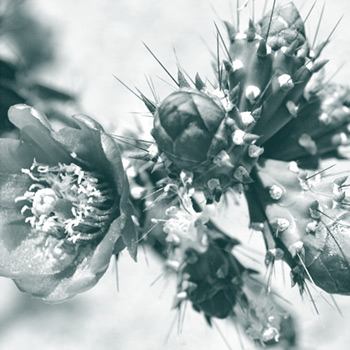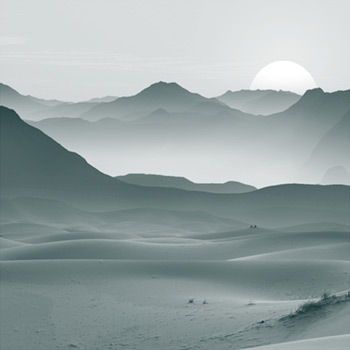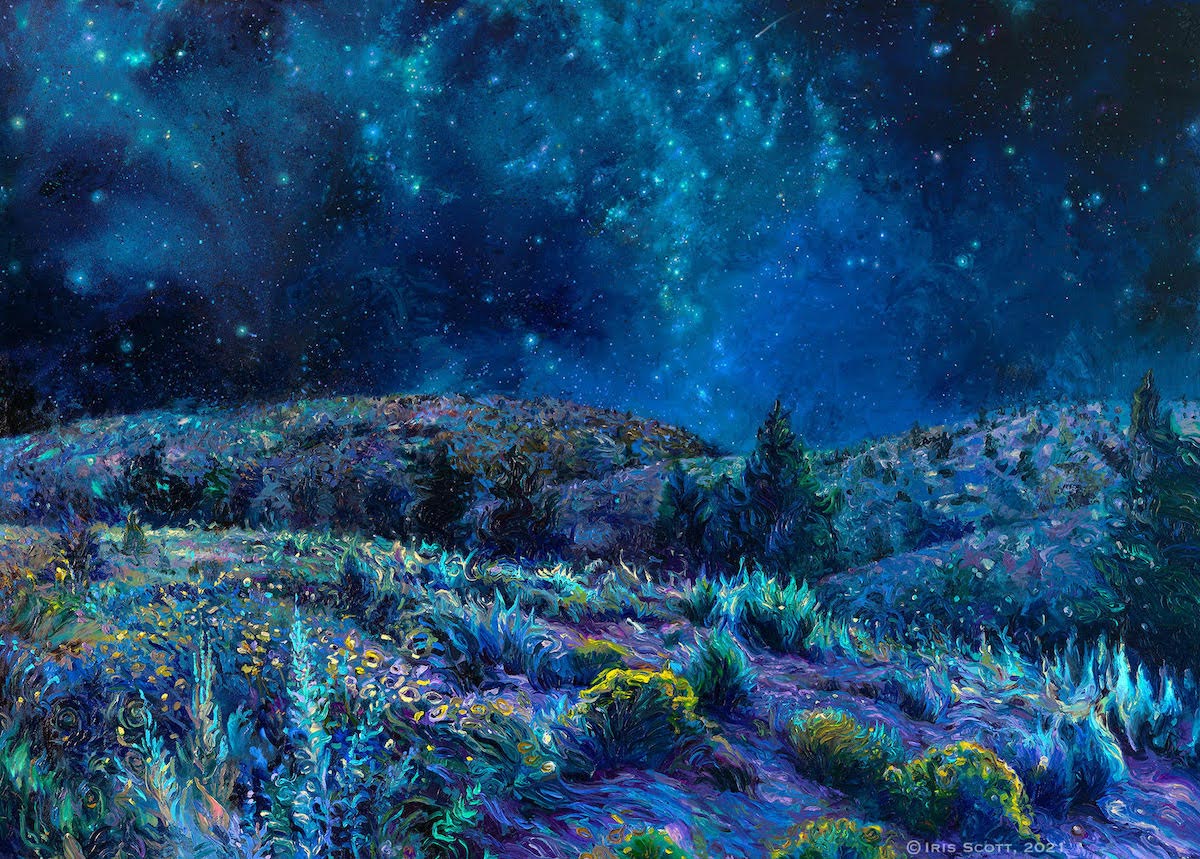Selah: Day 2
Seeing and Being Seen
God is glad to be here with you today. May you sense the tender gaze of Jesus, who is gentle and humble in heart. He offers rest to the weary and dry, those tired of trying hard to get it right. Let the knowledge of that wash over you and soak into the deep places of your soul.
If music helps quiet your heart, you may want to listen to this instrumental piece as you as you breathe in the presence of the Lord.
Opening Prayer
Pause and consider this prayer of blessing as we begin.

Where The Breath Begins
Dust dry.
And here
Did you think
It’s true that
But listen.
If you have come here
I tell you,
to see it now,
I tell you,
I tell you,
—Jan Richardson 2
Where The Breath Begins
Dust dry.
And here
Did you think
It’s true that
But listen.
If you have come here
I tell you,
to see it now,
I tell you,
I tell you,
—Jan Richardson 2
Thank you, Jesus, for the gift of the desert, where even in the dry, dusty places You breathe life into our souls.
The Word
Jesus, to whom shall we go? You have the words of eternal life, and we have believed and come to know that you are the Holy One of God. Praise to You, Lord Jesus Christ, King of endless glory.
Spirit of God, reveal Yourself to us as we read your Word.
Listen to Genesis 16 3 being read or read the Scripture below. Whichever you choose, listen slowly and pay attention to the words, phrases, or feelings that stand out to you.
Genesis 16 (NLT)
Now Sarai, Abram’s wife, had not been able to bear children for him. But she had an Egyptian servant named Hagar. So Sarai said to Abram, “The LORD has prevented me from having children. Go and sleep with my servant. Perhaps I can have children through her.” And Abram agreed with Sarai’s proposal. So Sarai, Abram’s wife, took Hagar the Egyptian servant and gave her to Abram as a wife. (This happened ten years after Abram had settled in the land of Canaan.)
So Abram had sexual relations with Hagar, and she became pregnant. But when Hagar knew she was pregnant, she began to treat her mistress, Sarai, with contempt. Then Sarai said to Abram, “This is all your fault! I put my servant into your arms, but now that she’s pregnant she treats me with contempt. The LORD will show who’s wrong—you or me!”
Abram replied, “Look, she is your servant, so deal with her as you see fit.” Then Sarai treated Hagar so harshly that she finally ran away.
The angel of the LORD found Hagar beside a spring of water in the wilderness, along the road to Shur. The angel said to her, “Hagar, Sarai’s servant, where have you come from, and where are you going?”
“I’m running away from my mistress, Sarai,” she replied. The angel of the LORD said to her, “Return to your mistress, and submit to her authority.” Then he added, “I will give you more descendants than you can count.”
And the angel also said, “You are now pregnant and will give birth to a son. You are to name him Ishmael (which means ‘God hears’), for the LORD has heard your cry of distress. This son of yours will be a wild man, as untamed as a wild donkey! He will raise his fist against everyone, and everyone will be against him. Yes, he will live in open hostility against all his relatives.”
Thereafter, Hagar used another name to refer to the LORD, who had spoken to her. She said, “You are the God who sees me.” She also said, “Have I truly seen the One who sees me?”
Genesis 16 Reflections
Write down which words or phrases stand out to you.
If you want to put yourself one step further into this story, watch this video of the desert regions of the Holy Land 4. Imagine Hagar in this landscape.

Meditations on Genesis 16
It’s safe to say that Hagar has most likely reached one of the lowest points of her life in this story. She has been abused and ostracized and is so desperate that she escapes to the desert in what appears to be an attempt to make it back to her homeland in Egypt. But the desert is a harsh and unforgiving landscape, and she is completely alone as she fights to survive.
As you consider Hagar’s story, what are some ways you can identify with her?
In what ways has this last year felt like a desert for you? Perhaps you can ponder the areas that have felt dry, lonely, discouraging, or scary.
If we are honest, there are times when we don’t sense God’s presence in our desert places. We don’t see Him stepping in to help. Consider whether you ever feel disappointed in God. You may wonder exactly what it is you can count on Him to do for you.
Let the beauty of the words in verse 7 capture your heart: “The angel of the LORD found Hagar . . . ” Finding implies searching! The angel of the Lord—Jesus—sought out Hagar, foreigner and slave. Take a moment to think about how it feels to be sought after, to be seen and wanted.
Hagar, non-Jew and outsider, does something audaciously beautiful: she gives God a name! She calls Him “the God Who Sees Me,” and then asks “Have I truly seen the One who sees me?” You can hear the amazement in her words!

Reflection
When life is hard and we find ourselves in desert places, it’s difficult to trust that God is good. Even our “solid” theology can seem empty in those moments. It’s in those places we can fall back on the larger story of the Bible.
“Jesus left a place where there is no night to enter into our darkness . . . To look to Jesus is to know that our Creator has felt pain, has known trouble, and is well-acquainted with sorrow . . . The story of the gospel is not a mere mantra or a relic of history. It is alive and ongoing. The work of Jesus continues, even now, in our everyday lives. So in hardship we do not look to Jesus solely as one who has been there before, once upon a time in a distant past. We find he is here with us, in the present tense. He participates in our suffering, even as—mysteriously—in our suffering we participate in the fullness of Christ’s life.” 5
Consider the places where perhaps Jesus has been present in your desert and where He might be transfiguring your desert places into something beautiful.
Would you be willing to stop and look at Jesus? What might He be saying to you in your desert places? You might try imagining His gaze as He looks at you. What do you see in His eyes?
Visual Contemplation
Set your timer for 5 minutes and study this painting, Sage and Time, by Iris Scott,6 a finger-painting artist (search Iris Scott Modern Met Amazing Desert Painting). She has illustrated the unique beauty of the desert—a paradoxical ecosystem where both hardship and loveliness can be found. You may want to observe this through the lens of a time when you’ve experienced your own desert places transformed into places of beauty.

Sage and Time by Iris Scott
Respond
As our time winds down, contemplate this quote by Henri Nouwen:
For most of my life, I have struggled to find God, to know God, to love God. I have tried hard to follow the guidelines of the spiritual life—pray always, work for others, read the Scriptures—and to avoid the many temptations to dissipate myself. I have failed many times but always tried again, even when I was close to despair.
Now I wonder whether I have sufficiently realized that during all this time God has been trying to find me, to know me, and to love me. The question is not “How am I to find God?” but “How am I to let myself be found by him?” The question is not “How am I to know God?” but “How am I to let myself be known by God?” And, finally, the question is not “How am I to love God?” but “How am I to let myself be loved by God?” God is looking into the distance for me, trying to find me, and longing to bring me home. 7
Breathe deeply and know that you are seen. You are found. And you are not alone.
In Jesus’ name, believe the gospel!
Take It Further
Would you like to incorporate some other ways to help you remain aware of the Lord’s gaze on you?
- Find a way to enjoy nature today, to remind you that beauty can spring up anywhere! If you aren’t able to get out and about, watch this video of the beautiful Keukenhof Tulip Gardens in Holland 8.
- Read and meditate on Ezekiel 34:11–16, another beautiful passage that talks about the Lord actively searching and finding the people He loves.
- This beautiful 12-minute modern-day oratorio 9 by Nicole C Mullins and Kathie Lee Gifford tells the story of Hagar, Ruth, David, and Mary—and the God who sees them all.
- Buy a beautiful bouquet of flowers (or arrange one yourself!) to remind you of Jesus’ presence with you.
- Find a weed in your yard or some other item from nature that doesn’t strike you as beautiful at first glance. Take a few minutes to study it closely and look for the hidden beauty in it.
- If you didn’t try this reflective exercise yesterday, you may want to invite connection with the Lord through this ) silent video 10. There is no sound, only written text along with a gentle, meditative exercise for you to try.
- On your own or as a family, make a collage to represent the painful places in your life from this last year and also the places where you have sensed Jesus has seen you or has brought beauty out of the pain. Click here for more information on how to make a collage if you’ve never done it before.
- Worship Jesus as you listen to these songs: Always Good 11 by Andrew Peterson or Wilderness 12 by Anna Byrd.
1 Gentle Awakening by Jim Brickman, 2017 Odeon Records Limited
2 From Circle of Grace: A Book of Blessings for the Seasons, by Jan Richardson
3 From NIV Audio Bible, April 2020
4 From video Israel Judea Desert Holy Land, Mike Edri, Offroad, May 2015
5 Trish Harrison Warren, from Prayer in the Night, pages 29-30
6 Sage and Time by Iris Scott, http:/irisscottfineart.com. Printed with permission.
7 From The Return of the Prodigal Son: a Story of Homecoming, by Henri Nouwen
8 Video Keukenhof 2019, by Holiday Life, May 2019
9 Video The God Who Sees, by The Rock, The Road, and The Rabbi Foundation, April 2019
10 Video Breathe: Being with God in Silence, by Emotionally Healthy Discipleship, November 1, 2018
11 Always Good by Andrew Peterson, Resurrection Letters: Prologue, 2018
12 Wilderness by Gateway Worship featuring Anna Byrd, How Glorious, 2019
Revisit the Selah Overview or proceed to the next Reflection